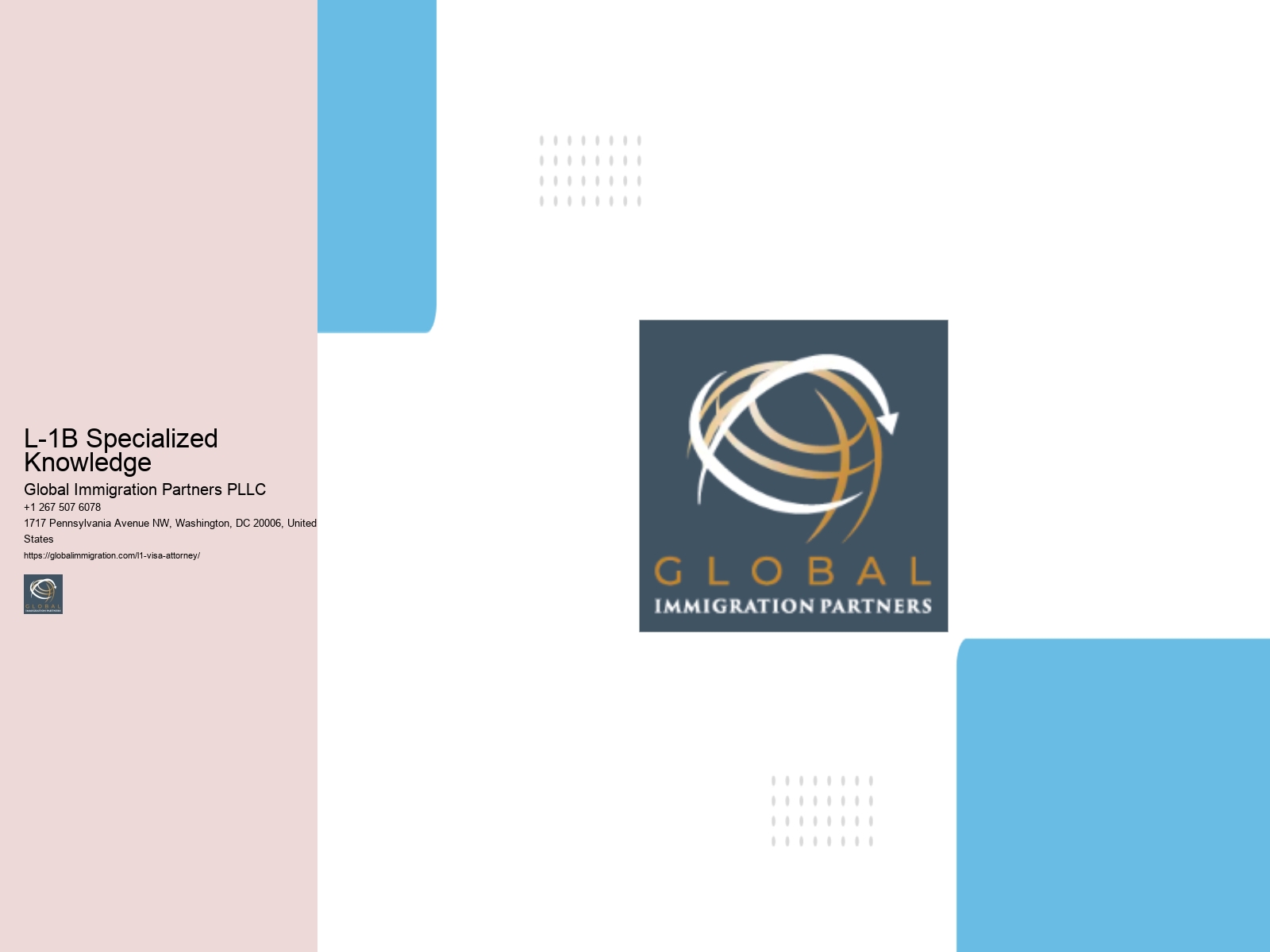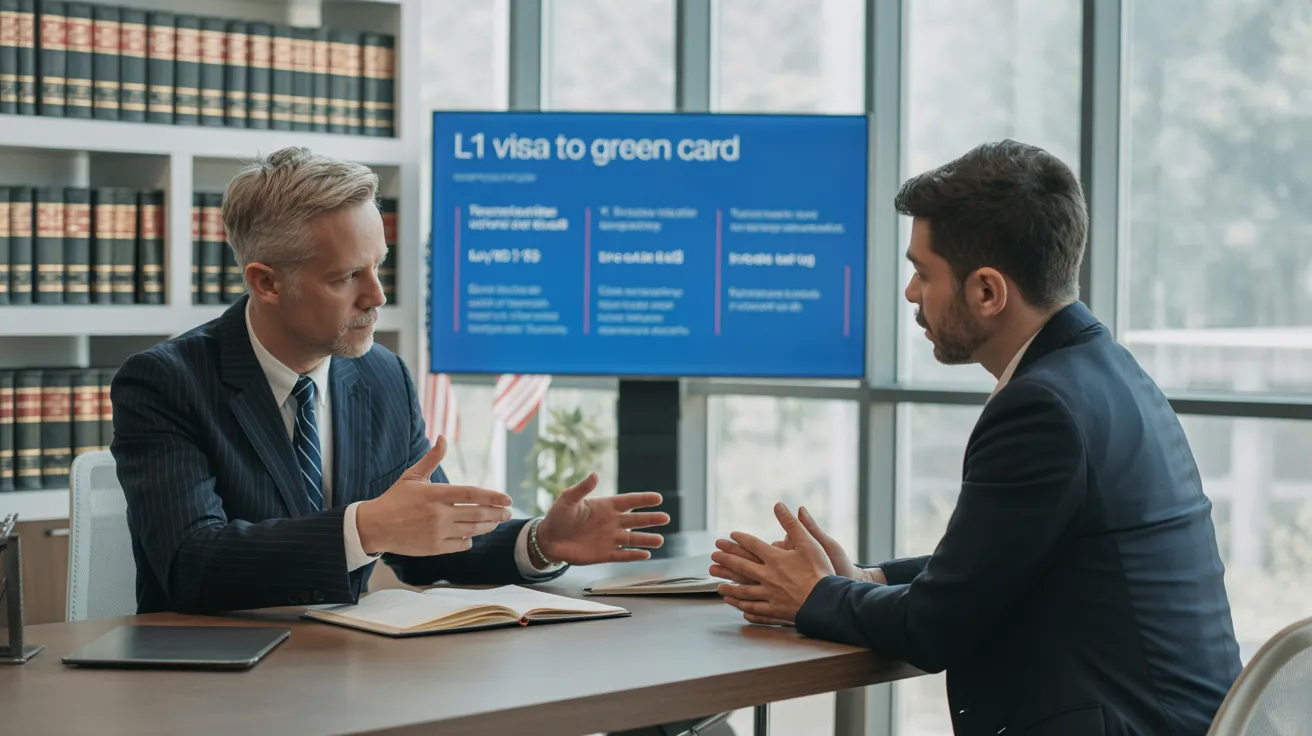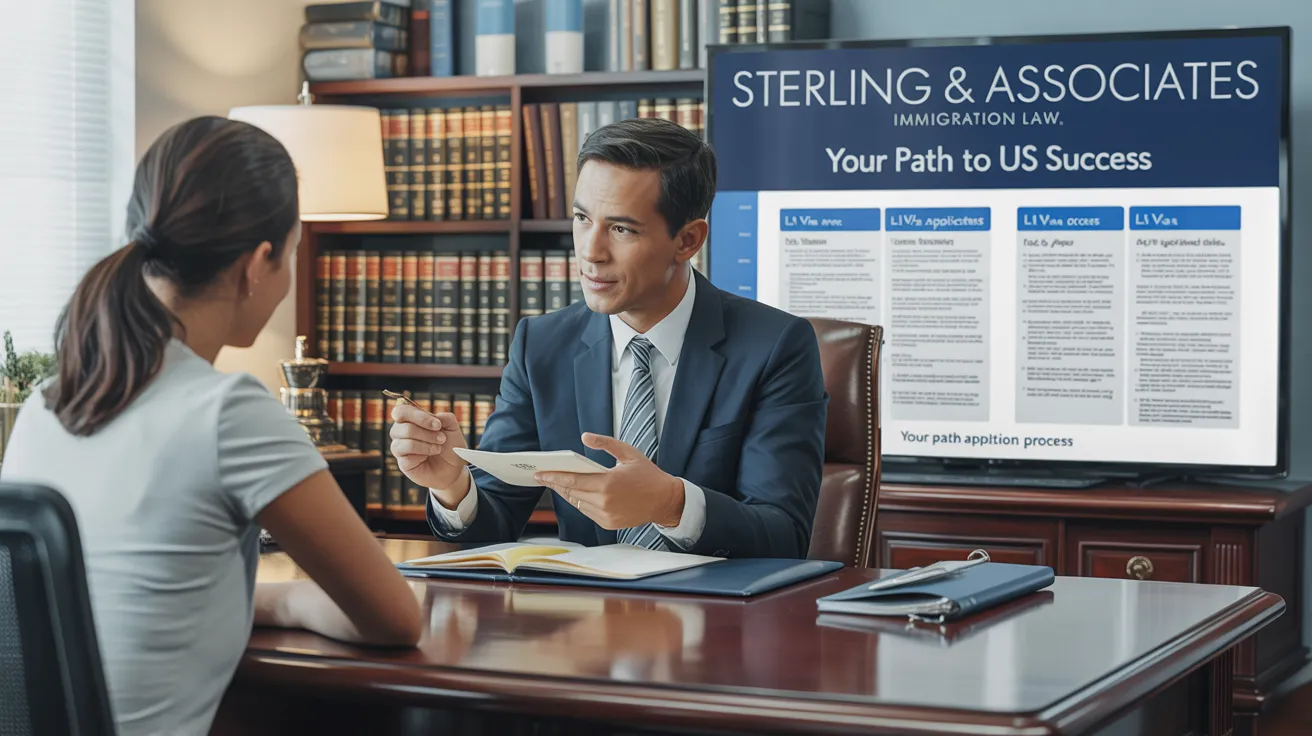

The L-1B visa category represents a critical pathway for multinational companies to transfer employees with unique expertise that cannot be readily obtained in the U.S. labor market. Understanding the complex standards for L-1B specialized knowledge is essential for companies seeking to leverage their global talent while navigating USCIS's increasingly stringent adjudication standards that require careful documentation and strategic presentation of qualifying expertise.
The specialized knowledge standard has evolved significantly through regulatory changes, policy memoranda, and adjudication trends that reflect USCIS's commitment to ensuring program integrity while recognizing legitimate business needs for international expertise transfer. This evolution requires sophisticated understanding of current standards and strategic approaches that address USCIS concerns while demonstrating genuine specialized knowledge qualifications.
The legal framework for L-1B specialized knowledge derives from Immigration and Nationality Act provisions and implementing regulations that define specialized knowledge as knowledge that is special and advanced, and either relates to the company's specific products, services, research, equipment, techniques, or management, or is advanced knowledge of processes and procedures of the company. This definition establishes the foundation for USCIS adjudication while requiring careful analysis of how individual cases meet these standards.
Regulatory interpretations emphasize that specialized knowledge must be more than ordinary knowledge possessed by workers in the particular field, requiring demonstration of advanced expertise that distinguishes the individual from others with general knowledge in the same field. The knowledge must be sufficiently specialized that it cannot be readily transferred to another individual without significant economic inconvenience to the employer.
USCIS policy interpretations of L-1B specialized knowledge have evolved through policy memoranda, Administrative Appeals Office decisions, and adjudication guidance that clarify the standards for qualifying knowledge while addressing common areas of confusion and misapplication. These interpretations provide crucial guidance for understanding how USCIS evaluates specialized knowledge claims in practice.
Policy evolution reflects USCIS efforts to balance program integrity concerns with recognition of legitimate business needs for specialized expertise transfer. Understanding these policy developments enables strategic petition preparation that aligns with current USCIS expectations while presenting compelling cases for specialized knowledge qualification.
Company-specific L-1B specialized knowledge often involves proprietary systems, processes, or methodologies that are unique to the organization and not readily available in the general marketplace. This knowledge encompasses understanding of proprietary software systems, manufacturing processes, research methodologies, or business procedures that provide competitive advantages and require specialized training or experience to master.
Proprietary knowledge must be sufficiently complex and specialized that it cannot be quickly learned by individuals with general knowledge in the field, requiring demonstration of the time, training, and experience necessary to develop the expertise. The knowledge must also be critical to the company's operations and not merely helpful or convenient for business purposes.
Advanced technical expertise represents another category of L-1B specialized knowledge that encompasses deep understanding of technical systems, methodologies, or applications that exceed ordinary knowledge in the field. This expertise must be demonstrably advanced compared to general industry knowledge while being specifically applicable to the company's operations and business needs.
Technical expertise qualification requires careful documentation of the individual's educational background, training, experience, and specific knowledge that distinguishes them from others in the field. The expertise must be sufficiently advanced and specialized that it provides genuine value to the company's operations and cannot be readily replaced by hiring individuals with general technical knowledge.
The development of L-1B specialized knowledge typically requires significant training, experience, and exposure to company-specific systems, processes, or methodologies that cannot be quickly acquired through general education or industry experience. This development process must be documented to demonstrate how the individual acquired their specialized knowledge and why it qualifies as advanced expertise.
Training and experience documentation should include formal training programs, on-the-job experience, project involvement, and other activities that contributed to the development of specialized knowledge. The documentation must demonstrate that the knowledge acquisition process was substantial and resulted in expertise that exceeds ordinary knowledge in the field.
Unique exposure to company-specific operations, systems, or methodologies often forms the foundation for L-1B specialized knowledge claims, particularly when the individual has been involved in developing, implementing, or managing proprietary systems or processes. This exposure must be documented to show how it resulted in specialized knowledge that cannot be readily obtained elsewhere.
Application of specialized knowledge in real-world business contexts provides crucial evidence of its value and uniqueness, demonstrating how the individual's expertise contributes to company operations and why it qualifies as specialized knowledge. This application must be sufficiently complex and valuable to justify L-1B classification.
Effective documentation of L-1B specialized knowledge requires detailed description and analysis of the specific knowledge possessed by the individual, including its technical components, company-specific applications, and the factors that make it specialized compared to ordinary knowledge in the field. This description must be sufficiently detailed to enable USCIS adjudicators to understand the nature and scope of the specialized knowledge.
Knowledge analysis should address how the individual acquired the specialized knowledge, why it qualifies as advanced expertise, and how it applies to the company's specific operations and business needs. The analysis must distinguish the specialized knowledge from general industry knowledge while demonstrating its value and uniqueness.
Comparative analysis represents a critical component of L-1B specialized knowledge documentation, demonstrating how the individual's knowledge differs from and exceeds ordinary knowledge possessed by workers in the particular field. This analysis must provide specific examples and comparisons that illustrate the advanced nature of the specialized knowledge.
Differentiation strategies should address the specific factors that make the knowledge specialized, including its complexity, uniqueness, company-specific nature, and the time and effort required to develop similar expertise. The analysis must convince USCIS adjudicators that the knowledge genuinely qualifies as specialized under current standards.

Technology companies face unique challenges in demonstrating L-1B specialized knowledge due to the rapidly evolving nature of technology and the global availability of technical expertise. Technology sector specialized knowledge often involves proprietary software systems, advanced algorithms, specialized development methodologies, or unique technical applications that provide competitive advantages.
Technology sector considerations include the need to demonstrate that the knowledge is more than general programming or technical skills, requiring evidence of advanced expertise in company-specific systems, proprietary technologies, or specialized applications that cannot be readily obtained in the U.S. technology market. The knowledge must be sufficiently advanced and unique to justify L-1B classification.
Manufacturing and engineering companies often rely on L-1B specialized knowledge related to proprietary manufacturing processes, specialized equipment operation, quality control methodologies, or advanced engineering techniques that are specific to the company's operations. This knowledge must be demonstrated to exceed ordinary engineering or manufacturing knowledge.
Manufacturing sector applications require documentation of the specific processes, equipment, or methodologies that form the basis of the specialized knowledge, along with evidence of the individual's unique expertise and experience with these company-specific systems. The knowledge must be sufficiently specialized that it cannot be readily transferred to other individuals without significant training and experience.
The current USCIS adjudication environment for L-1B specialized knowledge cases reflects heightened scrutiny and more stringent application of specialized knowledge standards, with adjudicators carefully examining whether the claimed knowledge truly qualifies as specialized under current interpretations. This environment requires strategic petition preparation that anticipates scrutiny and addresses potential concerns proactively.
Adjudication trends indicate increased focus on the company-specific nature of the knowledge, the advanced level of expertise required, and the business necessity for transferring the specific individual rather than hiring someone with general knowledge in the field. Understanding these trends enables better petition preparation and strategic evidence development.
USCIS scrutiny of L-1B specialized knowledge cases typically focuses on several key areas, including the genuineness of the specialized knowledge claim, the company-specific nature of the knowledge, the advanced level of expertise demonstrated, and the business necessity for the transfer. Understanding these scrutiny areas enables strategic petition preparation that addresses potential concerns.
Common scrutiny areas include verification that the knowledge is truly specialized rather than general industry knowledge, assessment of whether the knowledge is sufficiently advanced to justify L-1B classification, and evaluation of whether the U.S. position genuinely requires the specific specialized knowledge possessed by the individual. Petitions must address these areas comprehensively to optimize approval prospects.
Strategic preparation of L-1B specialized knowledge petitions requires comprehensive evidence development that clearly establishes the specialized nature of the knowledge while addressing potential areas of USCIS concern. This evidence must be organized and presented in a manner that facilitates adjudicator understanding while building a compelling case for specialized knowledge qualification.
Evidence development should include detailed knowledge descriptions, comparative analyses, training and experience documentation, and business necessity explanations that collectively demonstrate the specialized nature of the knowledge and the justification for the transfer. The evidence must be sufficiently comprehensive to address potential scrutiny while remaining focused and persuasive.
Effective legal argument and analysis form crucial components of L-1B specialized knowledge petition preparation, providing the legal framework that supports the factual evidence while addressing potential areas of concern or confusion. The legal analysis must demonstrate how the evidence satisfies current USCIS standards while distinguishing any potentially problematic factors.
Legal arguments should draw upon relevant regulatory provisions, policy guidance, and precedential decisions to support the specialized knowledge claim while addressing common areas of USCIS scrutiny. The analysis must be persuasive and comprehensive while remaining accessible to adjudicators who may not be familiar with the specific industry or technical knowledge involved.
When USCIS issues Requests for Evidence (RFEs) in L-1B specialized knowledge cases, the response strategy must carefully analyze the specific concerns raised while developing comprehensive responses that address these issues without creating new areas of concern. RFE responses often determine the ultimate success or failure of specialized knowledge petitions.
RFE analysis should identify the underlying concerns that prompted the request, evaluate the strength of the existing evidence, and develop strategies for addressing the concerns through additional evidence, clarification, or legal argument. The response must be comprehensive and persuasive while remaining focused on the specific issues raised.
When L-1B specialized knowledge petitions are denied, appeal and motion strategies must carefully evaluate the denial reasons and prospects for successful challenge while considering alternative approaches that might achieve the client's objectives. Appeal practice requires sophisticated understanding of Administrative Appeals Office standards and procedures.
Appeal strategies should analyze the legal and factual basis for the denial, assess the strength of potential arguments for reversal, and consider whether additional evidence or alternative legal theories might support a successful appeal. The strategy must also consider timing factors and alternative approaches that might serve the client's needs.

Maintaining L-1B status requires ongoing compliance with L-1B specialized knowledge requirements, including ensuring that the individual continues to utilize their specialized knowledge in the approved role and that the knowledge remains current and relevant to the company's operations. Changes in job duties or business operations may affect continued eligibility.
Compliance monitoring should include regular assessment of whether the individual's role continues to require specialized knowledge, whether the knowledge remains current and relevant, and whether any changes in business operations affect the specialized knowledge requirements. Significant changes may require amended petitions or status adjustments.
L-1B status extensions require demonstration of continued eligibility under L-1B specialized knowledge standards while addressing any changes in circumstances that have occurred since the initial approval. Extension petitions must provide updated evidence of the specialized knowledge requirements and the individual's continued qualifications.
Extension strategies must consider the maximum period of L-1B status, potential pathways to permanent residency, and business planning considerations that affect long-term immigration objectives. Strategic extension planning ensures continued compliance while positioning the individual for future immigration benefits.
Strategic integration of L-1B specialized knowledge transfers with business operations requires careful planning to ensure that the knowledge transfer serves legitimate business purposes while complying with immigration requirements. This integration must consider how the specialized knowledge contributes to business objectives and competitive advantages.
Knowledge transfer strategies should address how the specialized knowledge will be utilized in U.S. operations, whether additional training or development is needed, and how the knowledge transfer supports broader business objectives. The strategy must demonstrate genuine business necessity while ensuring compliance with L-1B requirements.
Long-term planning for L-1B specialized knowledge employees must consider career development, knowledge evolution, and potential pathways to permanent residency that align with both business needs and individual objectives. This planning ensures that L-1B status serves broader strategic purposes while maintaining compliance with immigration requirements.
Development planning should consider how the individual's specialized knowledge might evolve, whether additional training or experience might enhance their qualifications, and how their role might develop to support long-term business objectives. The planning must also consider immigration pathways that might be available for permanent residency.
Common pitfalls in L-1B specialized knowledge cases include inadequate documentation of the specialized nature of the knowledge, failure to distinguish specialized from general industry knowledge, and insufficient evidence of business necessity for the transfer. Understanding these pitfalls enables proactive strategies that avoid these issues.
Avoidance strategies include comprehensive case analysis, thorough evidence development, and strategic petition preparation that addresses potential areas of concern before they become problems. Professional guidance helps identify and address potential issues while optimizing petition presentation for favorable adjudication.
Optimizing success in L-1B specialized knowledge cases requires strategic approaches that go beyond mere compliance to present compelling cases that clearly demonstrate specialized knowledge qualifications while addressing potential concerns proactively. Success optimization includes comprehensive evidence development and strategic presentation.
Success strategies must consider the specific nature of the specialized knowledge, the adjudication environment, and the strategic factors that influence petition outcomes. Professional expertise enables development of tailored strategies that maximize the likelihood of approval while protecting against potential complications.

L-1B specialized knowledge must be special and advanced, going beyond ordinary knowledge possessed by workers in the particular field. It must be specific to the company's products, services, research, equipment, techniques, or management, or represent advanced knowledge of company processes and procedures. The knowledge must be sufficiently specialized that it cannot be readily transferred to another individual without significant economic inconvenience to the employer.
USCIS evaluates L-1B specialized knowledge by examining the nature and scope of the knowledge, how it was acquired, its company-specific applications, and how it differs from general industry knowledge. Adjudicators consider whether the knowledge is advanced, unique, and critical to company operations, and whether it can be readily obtained in the U.S. labor market. The evaluation focuses on the genuineness and value of the specialized knowledge claim.
Effective documentation for L-1B specialized knowledge includes detailed descriptions of the specific knowledge, training and experience records, comparative analyses showing how the knowledge exceeds ordinary expertise, and evidence of the knowledge's company-specific applications. Documentation should also include business necessity explanations and expert opinions that support the specialized nature of the knowledge.
Technical skills or programming knowledge can qualify as L-1B specialized knowledge if they involve proprietary systems, advanced methodologies, or company-specific applications that exceed ordinary technical knowledge in the field. However, general programming skills or widely available technical knowledge typically do not qualify. The knowledge must be sufficiently advanced and company-specific to distinguish it from general technical expertise.
If USCIS questions the specialized nature of the knowledge, they may issue a Request for Evidence (RFE) seeking additional documentation or clarification. The response must address the specific concerns raised while providing compelling evidence that demonstrates the L-1B specialized knowledge qualifications. Professional legal representation is crucial for developing effective RFE responses that address USCIS concerns while strengthening the case for specialized knowledge qualification.